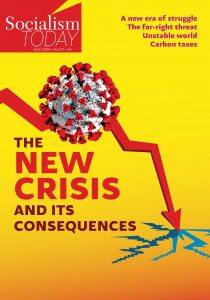
As global markets reel in the face of the developing coronavirus pandemic it is difficult to see how these events will not be the trigger for a new world capitalist economic downturn, with all the social and political consequences that will entail.
There is no doubt that the rapid spread of the virus and its disruptive impact has stunned the capitalist class and their political representatives.
On February 25 the chief economic advisor to Donald Trump, Larry Kudlow, breezily declared “we have contained this. I won’t say airtight, but it’s pretty close to airtight”.
Just twenty days later on March 16, after the MSCI all-country world index, the widest measure of global markets, had suffered its heaviest weekly loss since 2008, the US Federal Reserve central bank was forced to make its biggest intervention since the crisis then.
Read more